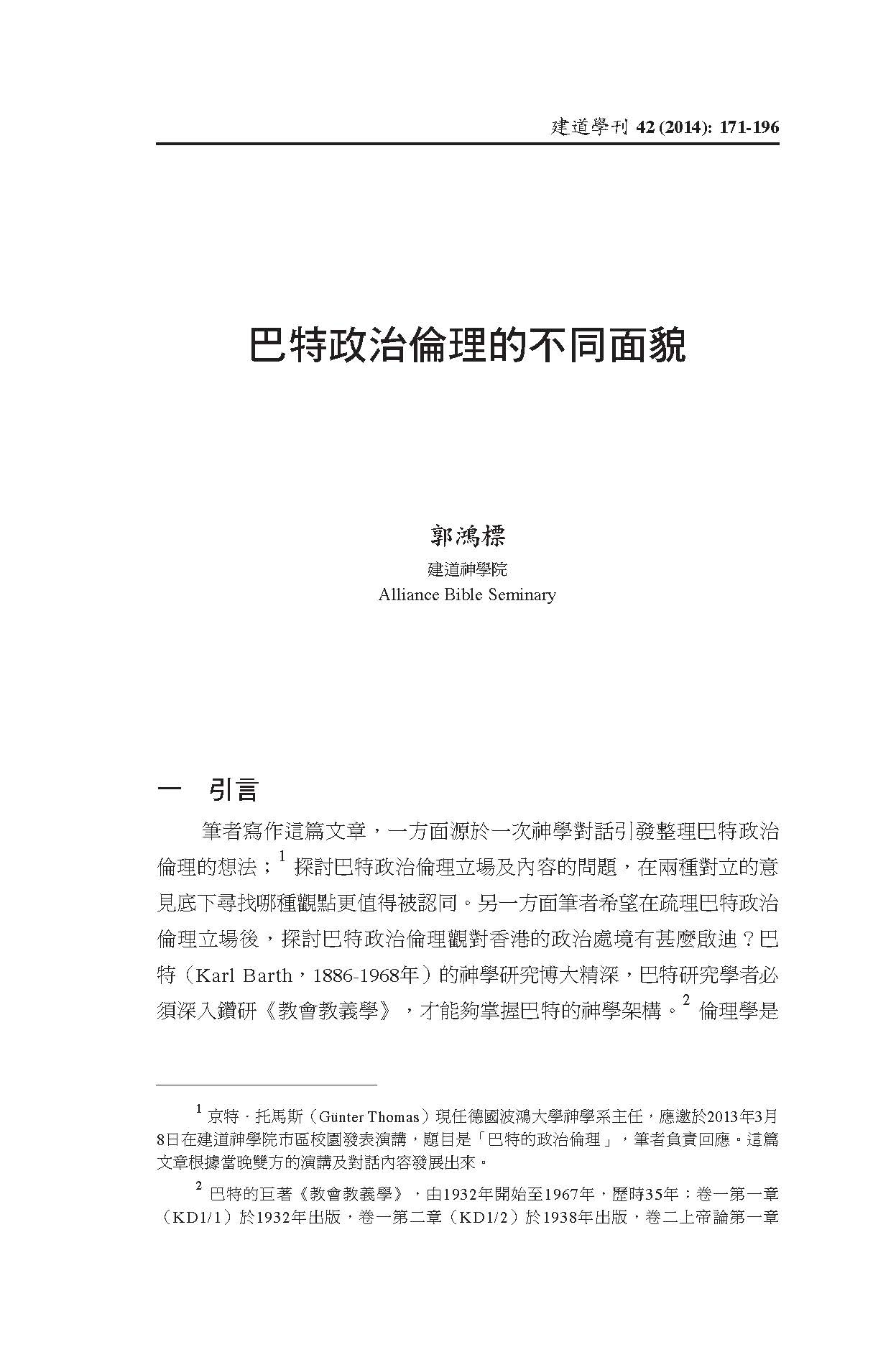巴特政治倫理的不同面貌/郭鴻標
郭鴻標
撮要
近年政治神學成為香港教會的重要神學議題,筆者透過巴特政治神學思 想不同面貌的探討,分析他在不同處境的政治倫理取向。巴特面對希特拉1933 年上台、希特拉於1938年入侵捷克、戰後蘇聯於1956年流血鎮壓匈牙利革命三個不同階段,有截然不同的表現。面對希特拉上台,巴特與認信教會於1934年 發表〈巴門宣言〉,針對的是教會的正確教義和面對政治轉變的態度,沒有具 體政治行動成分。1938年希特拉入侵捷克,巴特在致捷克朋友赫羅馬德卡的信 (Hromádka-Brief)裏鼓勵抗爭。戰後1956年蘇聯流血鎮壓匈牙利革命,巴特卻 保持緘默。究竟巴特為甚麼於三個不同處境有三個不同的政治倫理取向?筆者 認為巴特後期的政治倫理有值得檢討的地方;他對於血腥鎮壓的沉默不一定值 得作為我們的榜樣。
ABSTRACT
Recently Political Theology is becoming an important theological issue in Hong Kong. This author discusses different perspectives of Karl Barth’s Political Theological ideas, analyses Barth’s different political reactions in different contexts. Hilter got the political power in 1933, Hilter invaded Teschechoslowakei in 1938, and the Soviet Union crushed bloody the Hungarian revolution in 1958. Concerning the “Barmen Declaration” in 1934 was focused on the correct dogmatic position without concrete political action. In 1938 Barth wrote a letter to Hromádka in Teschechoslowakei supporting resistance Hilter’s invasion. However, Barth was silent during Soviet Union’s bloody crush against Hungarian revolution. Why Barth has different political position in three different situations? This author thinks that the later stage of Barth’s political ethics should be under critical examination and his silent against bloody crush is not necessary an example for us.
原載於《建道學刊》42期(2014年7月),頁 171-196。
作者簡介
郭鴻標
神學研究部主任
最新文章
新手牧者研究計劃(三):新手牧者的身心靈狀態 / 盧慧儀
2025 年 11 月 19 日
個體與關係:滕近輝思想中「深化」的靈性觀 / 倪步曉
2025 年 11 月 18 日
香港九龍塘基督教中華宣道會之起源和發展史/陳智衡
2025 年 10 月 20 日
编辑精选
[電子書]困境與抉擇:「建道研究中心30週年誌慶」跨學科研討會論文集/廖炳堂、倪步曉主編
2025 年 1 月 2 日
從梧州到長洲:建道神學院125年的挑戰與恩典 / 陳智衡
2023 年 10 月 1 日
微小教會的見證/高銘謙
2023 年 6 月 1 日







